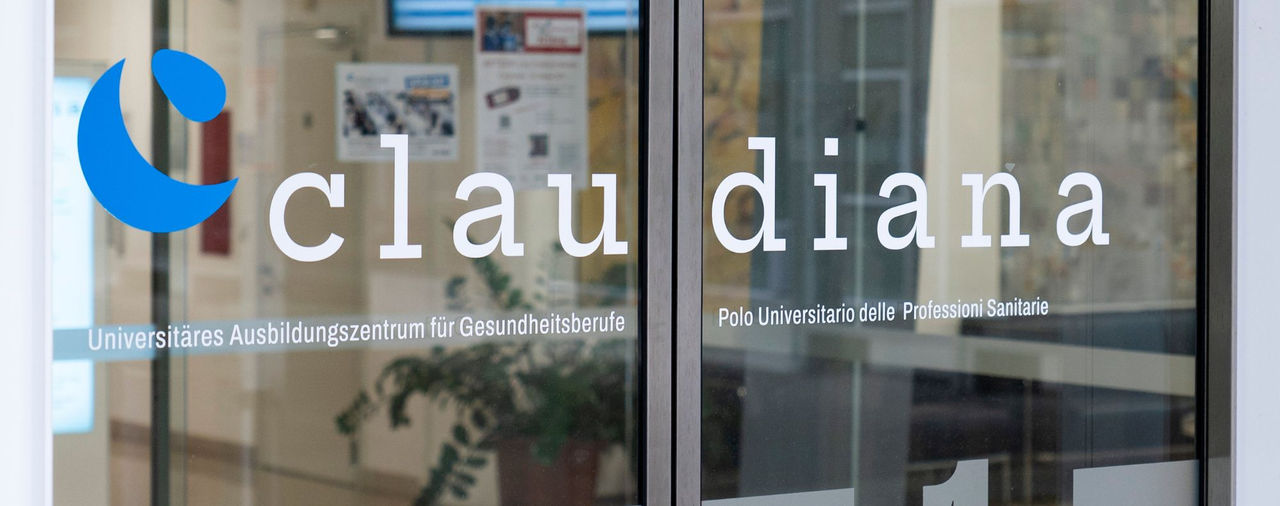Università Cattolica's 6-year Single-Cycle MD Medicine and Surgery

Along with the mandatory core component, the program allows personalized tracks with individual selection among many optional courses, as well as many concentration courses on the most innovative fields.
Teaching approach
The programme is based on an innovative curriculum that provides from the first years a strong integration between the basic sciences and the clinical sciences, as well as an in-depth approach to human sciences and bioethics - necessary to develop an effective doctor-patient relationship. This will enable students to gain practical experience at the Central Hospital in Bolzano as well as in the other hospitals belonging to the Hospital Network in the South Tyrol Region. What makes the programme unique in the national scenario is also the teaching of Italian and German, which will enable students to communicate easily with medical staff and patients.
Curriculum
In order to achieve formative goals, the Medicine and Surgery programme is organised to offer a total number of 360 European Credit Transfer System (ECTS), spread over a 6-year course. 60 credits consist of activities aimed at acquiring specific professional skills. Each ECTS corresponds to 12 hours of teaching. In case of professional training, each credit corresponds to 17 hours.
- Basic sciences (14 ECTS)
- Biomedical sciences I (10 ECTS)
- Italian language* (5 ECTS)
- German language* (5 ECTS)
- Scientific English (2 ECTS)
- Biomedical Sciences II (11 ECTS)
- Organic and functional systems I: MSK/Heart/Vascular System (12 ECTS)
* ECTS will be assigned according to the level of language proficiency of each student, to be evaluated during an assessment test. Students with a B2 level (or higher) bilingualism certificate (Italian/German) or a recognised equivalent certificate for both languages will be exempted from Italian or German language courses but they should attend other courses.
The study plan provides for the attendance of Theology courses, in order to offer a motivated, reasoned and organic knowledge of the Catholicism
- Italian language* (2 ECTS)
- German language* (2 ECTS)
- Organic and Functional Systems II: Respira[1]tory/Digestive/Urinary/Reproductive (15 ECTS)
- Microbe - Host Interaction (10 ECTS)
- Organic and Functional Systems III: Endocrine/Nervous System (12 ECTS
- Cellular And Molecular Pathology (8 ECTS)
- Epidemiology and Biostatistics (6 ECTS)
- History of Medicine and Antropology (2 ECTS)
* ECTS will be assigned according to the level of language proficiency of each student, to be evaluated during an assessment test. Students with a B2 level (or higher) bilingualism certificate (Italian/German) or a recognised equivalent certificate for both languages will be exempted from Italian or German language courses but they should attend other courses.
The study plan provides for the attendance of Theology courses, in order to offer a motivated, reasoned and organic knowledge of the Catholicism
- Manifestations of Diseases (13 ECTS)
- Approach to Diagnosis and Treatment (11 ECTS)
- Italian language* (3 ECTS)
- German language* (3 ECTS)
- Introduction to Clinical Medicine (13 ECTS)
- Infectious Diseases (10 ECTS)
- Hematology (8 ECTS)
* ECTS will be assigned according to the level of language proficiency of each student, to be evaluated during an assessment test. Students with a B2 level (or higher) bilingualism certificate (Italian/German) or a recognised equivalent certificate for both languages will be exempted from Italian or German language courses but they should attend other courses.
The study plan provides for the attendance of Theology courses, in order to offer a motivated, reasoned and organic knowledge of the Catholicism
- Gastroenterology (12 ECTS)
- Liver and Biliary Tract (6 ECTS)
- Metabolism and Clinical Nutrition (6 ECTS)
- Endocrinology (6 ECTS)
- Neurosciences (14 ECTS)
- Gynecology (10 ECTS)
- Maternal and Fetal Medicine (5 ECTS)
- Pediatrics (9 ECTS)
- Pneumology and Allergy (8 ECTS)
- Cardiology (8 ECTS)
- Vascular System (6 ECTS)
- Kidney and Urinary System (8 ECTS)
- Dermatology and Rheumatology (9 ECTS)
- Geriatrics and Palliative Medicine (7 ECTS)
- Emergency and Intensive Care (9 ECTS)
- Musculoskeletal Disorders (8 ECTS)
- Eye, Ear, Nose and Throat (10 ECTS)
- Forensic and Public Health (7 ECTS)
- Complex Cases (14 ECTS)
- TPV MMG (5 ECTS)
- Clinical Elective Rotations Abroad (8 ECTS)
- Thesis Dissertation (18 ECTS)
The Medicine and Surgery Master’s Degree programme consists of a series of integrated courses, each one focusing on a specific area of scientific skills and dealing with specific notions.
The key features of the teaching in the programme are:
- horizontal and vertical integration of knowledge;
- teaching methods based on a solid foundation in the pre-clinical area, and using a problem-based approach;
- early contact with patients;
- acquisition of clinical skills as well as development of strong communication skills.
The highly integrated and flexible teaching method is kept constantly updated and is designed to help students learn from a wide, comprehensive, interdisciplinary perspective providing constant stimulation to acquire new competencies.
Credits measure both individual study workload and classwork. One credit is valued at 25 hours of study, divided roughly into 12.5 hours of frontal lecture and 12.5 hours of independent study (made up of 12.5 hours of independent study and 12.5 hours of lectures) and students are expected to accumulate around 60 credits in an academic year.
Credits are not awarded until examinations are passed for the relevant course. Examination grades measure performance while credits quantify progress within the programme.
The Italian credit system (Crediti Formativi Universitari – CFU) uses the same unit measure as the European Credit Transfer System (ECTS).



